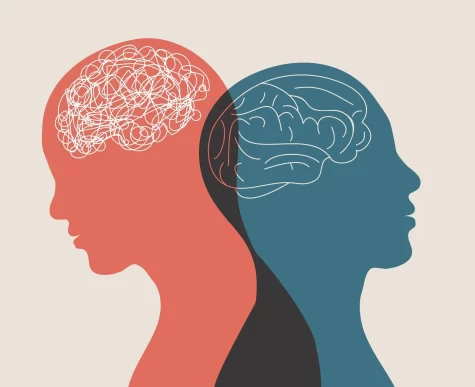Mental Illness: the Myths and Truth
September 28, 2022

The internet is a big place, with almost 63.1% of the human population on it. That’s more then 5 billion people! But with so much going on, sometimes people can get lost in the words.
Due to the rising numbers of depression, many myths have floated through the internet that, surprisingly, people have believed in.
What are some myths surrounding mental illnesses such as depression?
1. Perceiving it as laziness.
Depression, although it does not last forever, can be a crippling thing. The amount of depressed people struggling to even get out of bed is a staggering amount. This does not mean when it is the morning and you want to sleep more, that is normal. Instead it means when a baby is crying, your alarm is blaring, and you cannot bring yourself to get up and your body just will not let you.
2. Depressed people do not feel happiness.
This is a common misconception in the community. People who do not know what depression is like will try to understand it, but will likely get things wrong along the way. Some people believe that if you are depressed, you cannot feel the emotion of happiness and you are incapable of smiling or having fun. This can sometimes be harmful for the person who is depressed, and cannot seem to find anybody who takes them seriously, purely because they “do not have any symptoms”.
3. All introverted people have social anxiety.
Introverts are usually paired in media with social anxiety. Introverts are usually charcterized by not being comfortable with others, and preferring to stay alone. Social anxiety is a spectrum, and it is not all introverts. Extroverts can have social anxiety too. Somebody could be the most happy and talkative person you know, who seems to love being around people, but they could have social anxiety. They could have a serious case of it too. Sometimes, introverts do not have social anxiety. They just like being alone sometimes, and that is okay.
Obviously, these are not the only myths. Just remember to use your head and not assume things about the world you have close to no real knowledge about.
